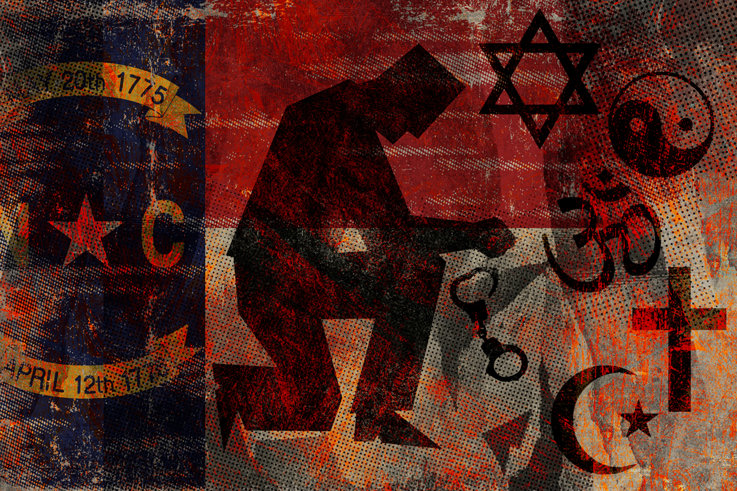
-
HOME
-
WHAT IS STANDOur Mission Our Values Our Help Contact
-
WHAT WE FIGHT FORReligious Freedom Religious Literacy Equality & Human Rights Inclusion & Respect Free Speech Responsible Journalism Corporate Accountability
-
RESOURCESExpert Studies Landmark Decisions White Papers FAQs David Miscavige Religious Freedom Resource Center Freedom of Religion & Human Rights Topic Index Priest-Penitent Privilege Islamophobia
-
HATE MONITORBiased Media Propagandists Hatemongers False Experts Hate Monitor Blog
-
NEWSROOMNews Media Watch Videos Blog
-
TAKE ACTIONCombat Hate & Discrimination Champion Freedom of Religion Demand Accountability
Increased Freedom to Religious Practice Granted to North Carolina Prisoners
As a result of an agreement reached between the United States Justice Department and the North Carolina Department of Adult Correction (NCDAC), inmates in the North Carolina prison system will be able to more easily practice their chosen faith, enhancing religious freedom in the criminal justice system.

The agreement didn’t attract a lot of attention during a heated election season and in the middle of other crises dominating the news, but the result was an important victory for religious rights and potentially the future of those confined in North Carolina.
In announcing the resolution of the case in August, the Department of Justice (DOJ) declared that “NCDAC is committed to protecting the rights of individuals in custody to participate in group religious worship and access religious diets.” The agreement concluded a DOJ investigation that began in 2020.
“Our Constitution protects the religious liberty of all people to exercise their faith. In America, that means even those who are incarcerated can continue to worship and pray.”
The DOJ conducted its investigation based on the Religious Land Use and Institutionalized Persons Act (RLUIPA) adopted by Congress in 2000. RLUIPA recognizes that religion is an important part of inmates’ lives and their potential for rehabilitation, and it prevents arbitrary or unnecessary restrictions on the religious practices of those incarcerated or institutionalized. It also gives the DOJ the authority to take legal action where needed to enforce its provisions.
The agreement has required the NCDAC to revise its own policies where they are inconsistent with RLUIPA and NCDAC’s recently affirmed commitment to religious rights. One policy change is to make it easier for religious groups of inmates to organize.
Another policy change is that Jewish prisoners will now have the opportunity to receive certified kosher-for-Passover meals for the eight days of Passover, provided by the prison system. NCDAC will also make it possible for inmates to participate in two Seder ritual observances, which will include a Seder plate of ceremonial foods.
In the press release announcing the decision, U.S. Attorney Dena J. King stated, “The settlement agreement reaffirms that all individuals in custody retain the right to practice their religion fully and openly during their incarceration.” In the words of another U.S. Attorney, Michael Easley, “Our Constitution protects the religious liberty of all people to exercise their faith. In America, that means even those who are incarcerated can continue to worship and pray. NCDAC’s new policies ensure that believers can maintain their faith and religious practices, even after they enter the jailhouse door.”
Religion is a redemptive force in society. Crime rates and the number and percentage of our citizens who are incarcerated serve as a danger signal that something is very much amiss. It is important that we take action on a one-on-one basis to help individuals follow a more ethical path. Most of the incarcerated will be released one day. Allowing them full access to the practice of their chosen faiths reduces the all-too-frequent outcome of prison as a revolving door and increases the likelihood that ex-inmates will be able to start a new life.









